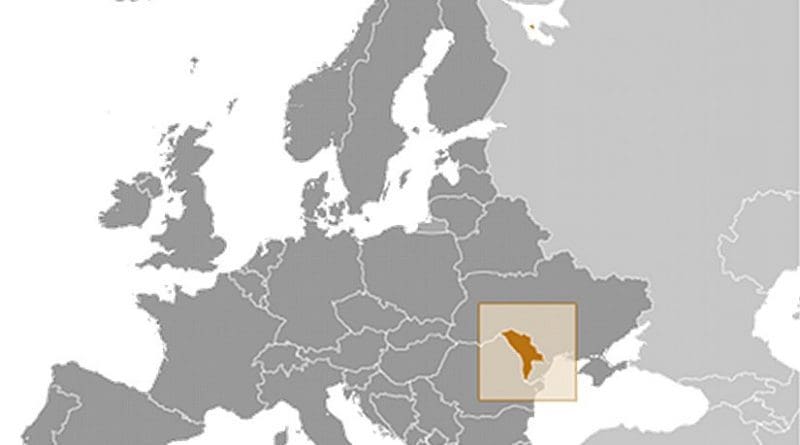Moldova: Romani Refugees From Ukraine Face Segregation, Says HRW
Moldovan authorities are deliberately housing most Romani refugees separately from others fleeing the war in Ukraine, in a manner that constitutes unequal and discriminatory treatment, Human Rights Watch said. Amid pervasive discriminatory attitudes toward Roma, government authorities have permitted and, in some cases, directed staff and volunteers to deny Romani refugees housing at government-run facilities.
“Moldovan authorities have offered critical support to people fleeing Ukraine, but that does not excuse segregation of Romani refugees,” said Anastasiia Kroupe, assistant Europe and Central Asia researcher at Human Rights Watch. “Regardless of the economic and social problems Moldova faces, the government has a responsibility to ensure that refugees are not discriminated against on the basis of ethnicity.”
Since February 24, 2022, more than 471,000 refugees have crossed into Moldova from Ukraine, the highest per capita influx to a neighboring country. About 87,700 refugees have stayed in Moldova, one of the poorest countries in Europe.
Between March 30 and April 5, Human Rights Watch visited and interviewed 7 members of police, border patrol, and social services at the Otaci and Palanca border crossings as well as 10 staff and volunteers working at transit and reception sites, and 13 refugees staying at 3 reception centers in the capital, Chisinau. Human Rights Watch also interviewed representatives of 3 United Nations agencies, 10 staff of nongovernmental organizations, and 2 Roma rights activists in Chisinau.
Human Rights Watch found a practice that appeared to be based on an agreed policy to segregate Romani refugees in designated state-run reception centers, and to deny Romani refugees housing together with other refugees in alternate state-run centers.
Since mid-March, almost all Romani refugees whose housing has been processed by the government have been placed in a previously abandoned university building at the Faculty of International Relations, Political Sciences, and Public Administration (FRISPA). Many were transferred there from the Manej Sports Arena, while later arrivals said they were directed there from the border, train station, or MoldExpo reception center without being informed of any other accommodation options.
Roma rights defenders and volunteers told Human Rights Watch that conditions at Manej were inferior to those in other facilities. The European Roma Rights Center (ERRC) said that living conditions at Manej and in the first days after FRISPA refugee center opened were “inadequate” and “poor.”
Volunteers who worked to find housing for refugees said that, from the outset of the crisis, some center administrators refused to accept Romani refugees. A government official told volunteers they should confirm refugees’ ethnicity before placing them in housing to avoid problems, even while admitting it was a form of racial profiling.
Staff and volunteers in Chisinau’s exhibition center, MoldExpo, which serves as the country’s largest reception center, said that city authorities had an unwritten “policy” denying almost all Roma housing at the center. “The government ordered that this is not a place for Romani people,” a MoldExpo employee said.
MoldExpo staff and volunteers said that central government authorities took over responsibility for the center from the city authorities on March 16 but did not communicate any change to this policy. On April 2, Human Rights Watch researchers witnessed MoldExpo staff denying a Romani family housing at MoldExpo on false grounds that there was no space available and that they did not have the necessary documentation.
MoldExpo’s director and Chisinau’s mayor told Human Rights Watch that no such policy has ever existed. The government of Moldova had not responded to a Human Rights Watch request for comment on the findings and additional information.
Leaders of the Moldovan Romani community and volunteers who took part in government meetings told Human Rights Watch that some of the leaders taking part in the meetings in early March agreed that Romani refugees could be accommodated separately in Manej as a temporary measure with the aim of better meeting their needs.
Moldovan authorities should urgently end any policy, official or unofficial, to segregate Roma, and take steps to counter discriminatory attitudes toward Romani people, including Romani refugees from Ukraine, Human Rights Watch said. The authorities should ensure equal access to reception centers, housing, and all services and humanitarian aid for Romani and non-Romani refugees, and provide all refugees with equivalent information and options regarding housing. The EU and international and regional organizations should urge Moldova to ensure fair and equitable treatment of Romani refugees.
The government should consult with Romani refugees regarding their specific needs. The authorities should ensure that they maintain communication with Romani leaders, including in Ukraine, and provide needed services, including by barring discrimination in recruitment and hiring, and actively working to recruit and hire Romani volunteers and staff.
“The Moldovan government should take all possible steps to fight discriminatory attitudes toward Romani people rather than enabling or reinforcing them,” Kroupe said. “Romani people have the same rights as anyone else fleeing the war in Ukraine, and Moldovan authorities should set a positive example for the entire region by upholding these rights and treating Romani and other refugees equally.”

